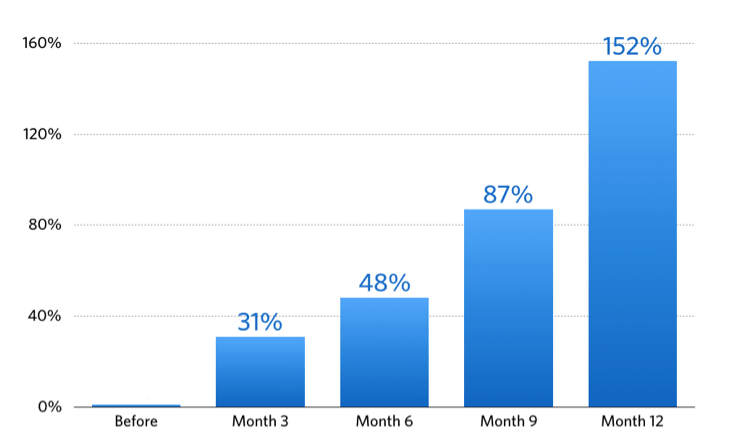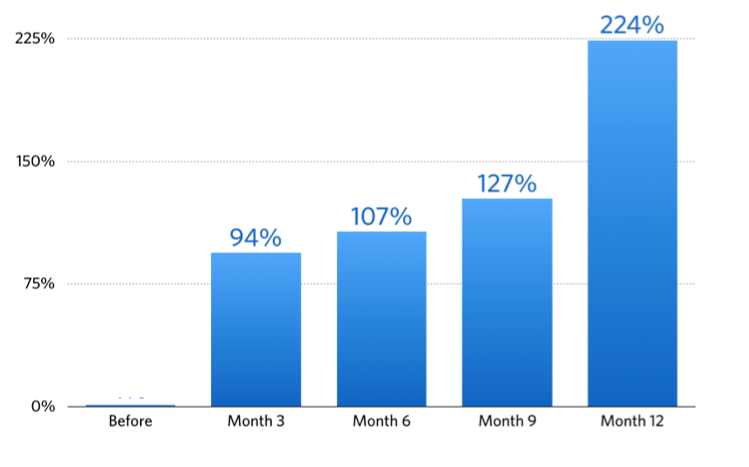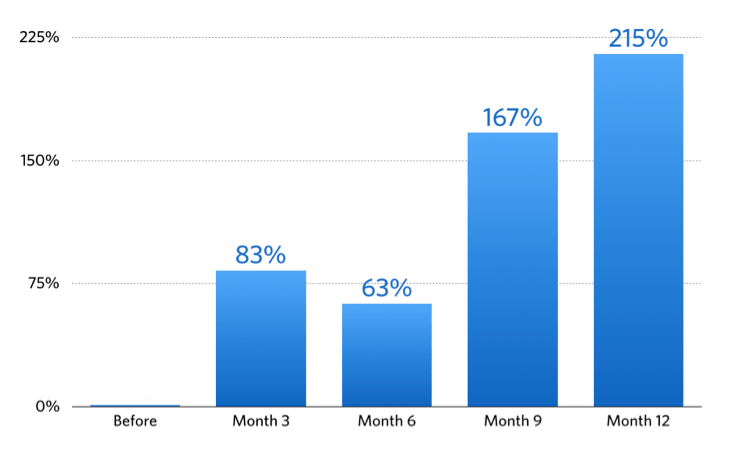Have you been competing for work that you are more than qualified to perform, only to be underbid by your competition? Or maybe you have been the one underbidding, which leaves you no room for growth or prosperity.
If you want to stop competing on price alone, it may be time to develop a stronger differentiation strategy.
Differentiation Strategy Defined
Your differentiation strategy is the way in which you make your firm stand out from otherwise similar competitors in the marketplace. Usually, it involves highlighting a meaningful difference between you and your competitors. And that difference must be valued by your potential clients. A strong differentiator will provide a competitive advantage for your firm.
Michael Porter, the famous strategist, maintains that there are only two ways to gain a sustainable advantage over your competition. One way is to compete on price, highlighting the similarities you share with your chief competition:
“We’re just as good as our competition, but we cost less.”
Unfortunately, unless you have a sustainable cost advantage, you can’t keep up this strategy for long. All it takes is someone willing to undercut your lowest price. The lowest-cost strategy also exposes you to commoditization and a much wider range of competitors, including do-it-yourself options, off-shoring and automation.
Porter’s other way — and a better way — is to stand apart. Be different. Separate yourself from competitors in a way that is both important and relevant to potential clients.
According to our definition above, this is a differentiation strategy.
Now, a point of differentiation may be broad-based and set you apart from the rest of the industry or more narrow, appealing to a niche market. This latter approach is often referred to as a focused or concentrated strategy.
Differentiation Strategy Examples
Here’s an example of a broad differentiator: adopt a very different business model. Let’s say that hourly billing is widespread in your industry. Offering a pay-for-results billing model, instead, would separate you from competitors.
Of course, developing a broad-based differentiation strategy, in which your firm is substantially different from your industry as a whole, is hard to achieve. And even if you were able to pull it off, what’s to keep a competitor from emulating your approach?
This is why many firms choose to compete with a focused strategy. In a focused strategy you narrow your appeal to a niche audience.
For example, an accounting firm that works exclusively with chain restaurants has a very compelling differentiator to that niche market segment. However, a different audience segment, such as automobile dealers, would find no value in working with the restaurant specialists.
Advantages of Differentiation
There are some big advantages to using a differentiation strategy. Here are some of the benefits.
You do not have to compete on price alone.
Since you have distinguished yourself from your competitors the prospective client cannot reduce their choice to the dimension of cost alone.
You have greater appeal to your target audience.
Since you are different, and presumably better, you make a more appealing choice. This makes it easier to generate interest and close sales.
There is no direct substitute.
This is a related point to the appeal of your difference. Lack of direct comparability forces the prospect to focus on the incremental value of your difference. This adds value that other options do not have.
You increase loyalty.
Greater value and a lack of comparable substitutes result in greater loyalty to your firm. There is no good reason to switch (if you are delivering on your promise) and no comparable alternative to switch to.
You can command greater fees.
Assuming that your differentiation is one that adds value and is not available elsewhere you are in a position to command higher fees. This is especially true if your differentiator is around specialized expertise.
Whether your strategy is broad or very focused it must always start by identifying your firm’s differentiators.
Differentiator Defined
A differentator is something that makes your business meaningfully different from your competitors and more valuable in the eyes of your target audience. Differentiators are the building blocks of a differentiation strategy.
But simply calling something a differentiator doesn’t make it so.
First it must pass three tests.
Three Tests for a Successful Differentiator
How do you know you have a good differentiator? We recommend you put each one to the test. If it can pass these three critical checks, it is worth developing into a broader differentiation strategy:
1) Is it true?
Differentiators can’t be fabricated. Apart from the moral hazard of making stuff up, it is simply too easy for people to see through exaggerated claims. Whatever you put forth s a differentiator, your firm has to live it each day. And remember, you’ll need to deliver on your promises.
For example, many firms say they have superior client service, but they do nothing special to make it a reality. No special policies. No special training. Nothing to ensure it actually happens. The bottom line is they are no different than a slew of competitors that make the same claims.
2) Is it relevant?
If your point of distinction doesn’t matter to your prospects, it won’t bring you more business. In the end, what is most important is what plays into your target prospects’ selection criteria and decision-making process. Any irrelevant differentiators are wasted effort.
We once had a lobbying client that believed their strongest differentiator was their firm’s lack of conflicts of interest. Their competitors certainly could not make the same claim. But, when we dug a bit deeper, we discovered that their clients and prospects didn’t value impartiality much at all. So much for a strong brand differentiator.
In our research of professional services firms, we found another reason to reject client service as a differentiator — buyers don’t even consider it as a selection criterion. A lack of customer service may be a reason why you lose a client, but it rarely plays into the initial selection process. It’s just not relevant yet.
3) Is it provable?
This is the often the hardest test of a differentiator. You may have identified a true and relevant point of distinction, but it is useless without proof. Even if a differentiating statement is true, if you can’t substantiate it with evidence it buyers won’t believe it. They have become inured to — and learned to ignore — empty claims.
Here’s a popular differentiator candidate that many of our clients are fond of: “We have great people.” It is a trap! Why? Well, have you ever heard a firm claim they have average people?
Didn’t think so.
But there are exceptions. One of our clients provides specialized software development services — and they hire only PhD-level programmers. They actually can support a “great people” differentiator with evidence.

The Challenges of Maintaining a Competitive Advantage
You are well on your way to a solid differentiation strategy once you know what sets you apart from your competitors. Especially if you can explain — and prove — it in a way that is relevant to your target audience. But you are not done yet.
The marketplace doesn’t stand still. Shrewd competitors will look at your success and attempt to copy it. Over time, what was once a distinctive characteristic may be neutralized. Your competitive advantage will be lost.
To build a sustainable differentiation strategy you need to build your reputation around those distinctive characteristics and make your expertise exceptionally visible to your target audience. This “Visible Expertise” will become the foundation of your professional services brand.
Why Visible Expertise Matters to Professional Services Firms
This brings us to the topic of expertise and why it is so critical to professional services.
In the professional services, expertise is what you sell.
Clients aren’t buying your services because they like them. They are buying your services to solve a business problem or seize an opportunity. For example they may need help complying with a regulatory requirement or solving a critical strategic challenge.
Our research into professional services buyers describes what criteria companies use to select one service provider over another. One of the most common selection criterion is expertise, and it is the factor that most often tips the scale in favor of the contract-winning firm.
But what about the argument that professional services are “a relationship business”? Well, that assumption is partially true. Good business relationships are certainly helpful. As we outlined in our research report, Inside the Buyer’s Brain, both buyers and sellers of professional services understand the importance of an existing relationship, but sellers consistently underestimate the role their reputation plays in the final selection.
Also, a strong reputation for expertise is the one factor that can overcome an existing relationship. If a company does not believe their current provider can solve a problem, they will look for a firm that can.
Not long ago, a prospective client came to us for our marketing expertise. Previously, he had hired a life-long friend to help with his marketing. Despite their close relationship, he had fired his friend (and hired Hinge) because his friend could not solve his marketing challenge. Our strong reputation for solving the specific marketing challenges faced by professional services firms was more important than their personal relationship.
According to our most recent study of referral marketing, visible expertise plays the single most significant role in driving referrals. Relationships — both social and professional — are still important, but only when there is an awareness of your expertise.
Overcoming the Problem of Invisibility
Developing expertise as a differentiation strategy sounds like a great idea, but there is a catch. Clients are notoriously uninformed when it comes to judging actual expertise. Consequently, your firm’s expertise is often unseen by the marketplace.
And if your firm’s expertise is not visible, for all practical purposes it doesn’t exist.
Fortunately, it is possible to make intangible expertise visible and real.
We conducted extensive research on highly visible experts and the professional services buyers who hire them. As we outline in The Visible Expert, there are certain strategies and techniques that can elevate the visibility of your expertise in the marketplace.
Public speaking, writing blog posts and articles, and publishing books are all effective ways to demonstrate your expertise. And there are many others. The value of these different techniques, when put together as part of a differentiation strategy, has been proven time and again by clients that go through our Visible Firm® or Visible Expert® programs.
But the only proven way to make your expertise visible and turn it into a credible differentiator is to have a clear strategy.
Building Your Differentiation Strategy
Developing and implementing a differentiation strategy is a five-step process.
Start with an understanding of exactly what you want to be known for.
What are you expert in? Your area of expertise or other differentiator should be broad enough to be enduring and relevant to your clients. But that breadth must be balanced. The narrower and more specialized your expertise, the easier it is to make it visible and defend against potential competitors.
The next step is research.
Research will help you align your firm’s offerings with the desires and preferences of potential clients. It will also inform your selection of issues to write about to make your expertise more visible to your target audience. We have found that firms that research their target client group tend to grow faster. In fact, the fastest growing firms (those that grow at least 20% year over year) take it a step further and are more likely to use original research in their content marketing strategy.
Develop your differentiators and focus.
What sets you apart from competitors and delivers exceptional value to a segment of the market? Build a list of potential differentiators and put them to the three-step test. If you end up with three to five differentiators, that’s great. One strong one can even be plenty.
However many differentiators you have, you’ll need a focus. That focus, along with the supporting differentiators, will inform your positioning statement. Your positioning statement is a short statement that describes what your firm does, who it does it for and why a prospect should choose you. Think of it as the DNA of your differentiation strategy.
Build your story.
Next you’ll need to tell your story to your target audience. Most prospective clients check you out on your website, so that’s a great place to start. First impressions matter. Help visitors answer the question, is this firm for me?
But your website is only the beginning. You need to make that all-important expertise visible to the outside world. How? Publications, webinars, workshops, speaking engagements. How about video? The list goes on.
The point is you need a plan to turn the strategy into a reality. Then you need to build the tools to make that plan happen.
Tell the world.
Now it’s time to tell the world, or more specifically your target audiences, the story of your firm. Implement the plan. Track your efforts and their impact. Monitor the new business pipeline. Then test and adjust. The message gets better and the brand gets stronger each time you make results-driven adjustments.
Evaluating Your Differentiation Strategy
The research on evaluating a differentiation strategy is still evolving. However, we’ve learned some important things already. For example, we know that highly visible experts accelerate the growth of a firm by 1) attracting new leads and 2) making it easier to close them as clients. We also know the fastest growing, most profitable firms use strategies and marketing techniques that raise the visibility of their expertise.
A well-thought-out differentiation strategy and a commitment to implementing your plan will accelerate your firm’s visibility and perceived expertise. Figures 1, 2 and 3 show the average increase in visibility, perceived expertise and new business leads experienced by firms that went through Hinge’s Visible Firm program, which is based on the principles we’ve outlined in this article. These data will give you a feel for what is possible when a comprehensive differentiation strategy is fully implemented.

Figure 1. Increase in Visibility

Figure 2. Increase in Perceived Expertise

Figure 3. Growth in Online Leads
These are certainly impressive results and they speak to the pivotal role that a differentiation strategy can play in the growth of a professional services firm.
How Hinge Can Help
Don’t know where to start? Hinge can help you develop winning differentiators that will put you on the road to greater visibility. Our research, positioning and branding services — as well as our Visible Firm® and Visible Expert® programs — are designed to do just that.
Additional Resources
- If you are an expert who yearns to rise to the top of your profession or build a wider reputation, your moment is now. Get a copy of The Visible Expert Revolution: How to Turn Ordinary Experts into Thought Leaders, Rainmakers and Industry Superstars
- Download our free book Inside the Buyer’s Brain to learn more about what sets sales winners apart from runners-up.
- If more of a hands-on approach is for you, register for one of our courses through Hinge University and become the next Visible Firm® or Visible Expert®.



